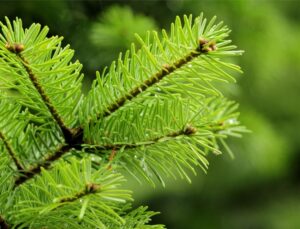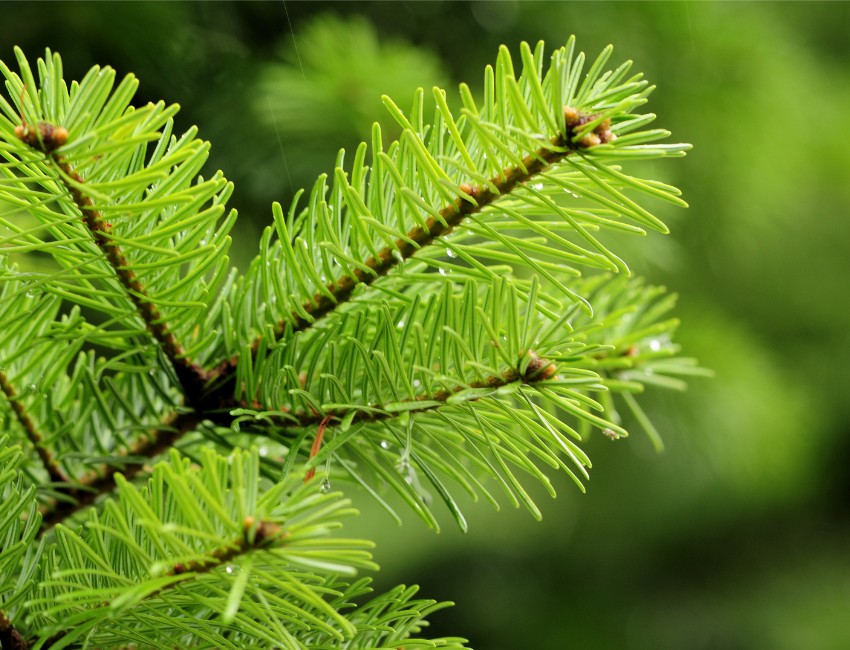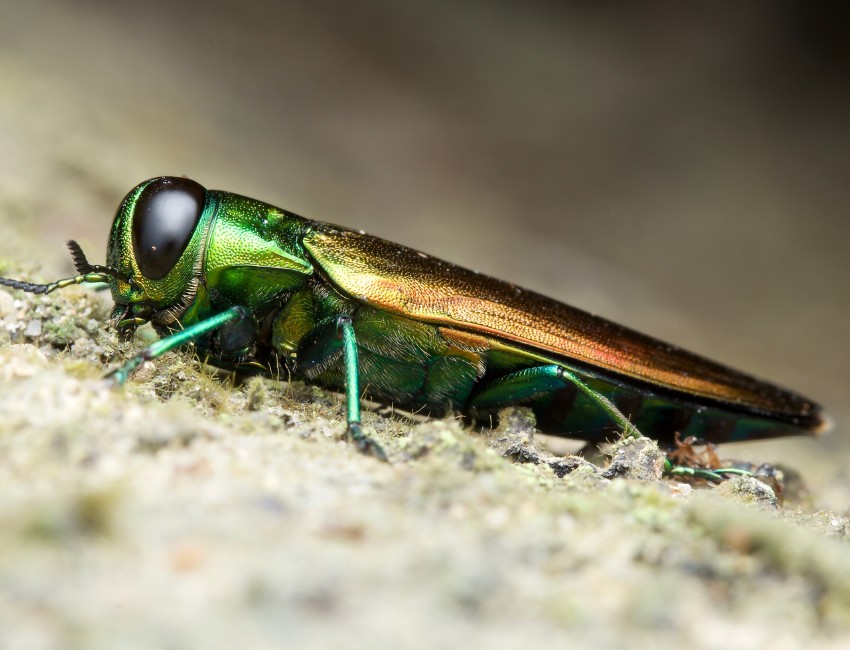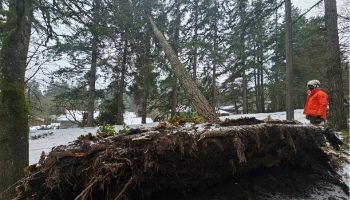5 Surprising Ways Mulch Helps Portland Trees Beat the Heat and Drought
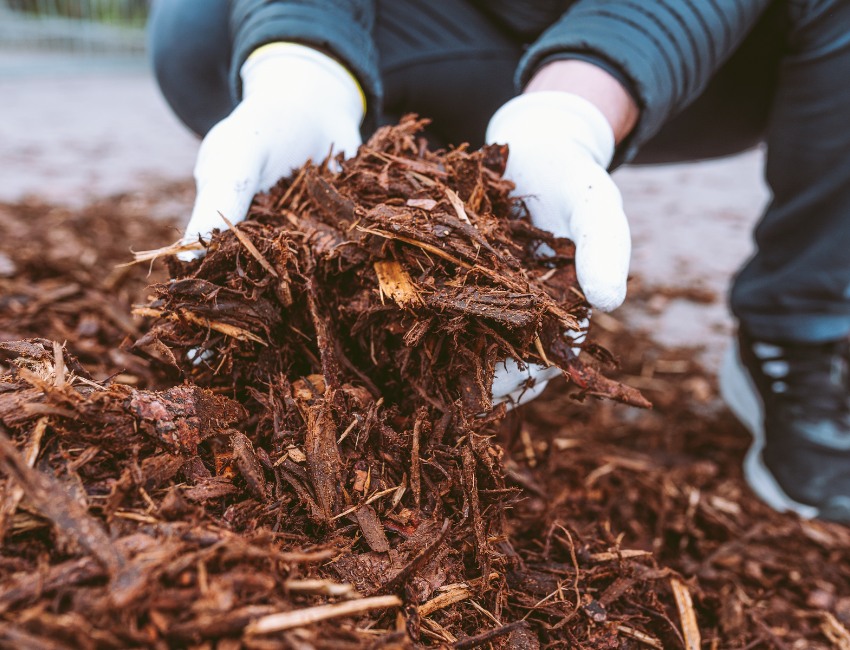
Take a walk through any neighborhood in Portland and you’ll see it – trees struggling under the weight of another brutal summer. With the region officially back in severe drought and its first-ever extreme heat watch already issued, the signs of tree stress are everywhere: scorched leaves, wilting branches, and dry, cracked soil.
One of the easiest ways to help reduce the stress on your trees this summer comes from an unlikely source: mulch. Often overlooked, mulch helps trees withstand drought and heat in ways most homeowners don’t realize but should.
Key Takeaways
- Organic mulch mimics nature’s process by slowly decomposing to add nutrients back to the soil.
- A 2–4-inch layer of mulch suppresses weeds that compete with trees for nutrients, while eliminating the backbreaking work of constant weeding.
- Mulch dramatically reduces water loss during Portland’s increasingly hot and dry summers by keeping the soil cool and blocking evaporation from direct sunlight.
- Proper mulching regulates soil temperature year-round, allowing roots to grow optimally.
- Mulch prevents costly soil erosion during Portland’s heavy rains by creating a protective barrier that stops soil compaction and nutrient runoff into local waterways.
5 Ways Mulch Helps Trees Survive Summer in Portland
When Portland summers bring intense heat and drought, your trees need all the support they can get. One of the easiest and most effective ways to protect them is with mulch. Here’s how a well-mulched tree is far better equipped to handle extreme weather, retain moisture, and stay healthy year-round.

1. Use Mulch to Add Nutrients Without Fertilizer
Does your tree seem like it isn’t as vibrant as it once was? Or maybe it looks like it is dealing with stress from our summer heat and drought? It could be a nutrient deficiency. Soil in urban landscapes can eventually end up deprived of nutrients as your tree constantly takes and doesn’t replenish them.
In nature, fallen branches and leaves decompose into the soil, adding nutrients back. However, in your yard, you’ll likely rake these up and dispose of them, depriving your soil of an avenue for nutrients.
Organic mulch can mimic the forest floor. As time passes, the mulch will gradually begin to decompose. While this does mean you have to refresh the mulch regularly, it does lead to a healthier tree and better soil.
These nutrients reaching your tree in the summer is especially important, as we can’t effectively fertilize during that time. Summer fertilization can stress a tree out, harm roots, and lead to unhealthy growth, especially when we see a drought. The decomposition of mulch will replenish the soil without harming your tree.
2. Stop Weeds from Competing with Your Trees
Weeds aren’t just an eyesore, they compete with your trees for vital nutrients, water, and root space. As weeds spread, they can weaken the surrounding soil, forcing you to rely on fertilizer just to keep your tree healthy.
Mulch acts as a natural weed barrier by blocking sunlight from reaching the soil. Without sunlight, weeds struggle to germinate and grow. That means less time spent pulling weeds by hand, lower stress on your trees, and fewer dollars wasted on weed control products.
3. Retain Moisture and Reduce Water Loss
Summers have been getting hotter in Portland in recent years. With the increased heat, we have also experienced more dry periods and droughts, like the one Portland is currently facing now.
While there’s no way to make it rain, you can help mitigate the worst effects of drought with mulch. By keeping the soil cooler and blocking direct sunlight, mulch significantly reduces the amount of water that evaporates during a hot summer day. Keeping the existing water in the ground allows your trees to access it, which in turn lowers their stress.

4. Cool the Soil and Support Healthy Root Growth
Tree roots may be out of sight, but they’re hard at work all year, especially in summer, when they’re searching for water and nutrients. But roots don’t grow well in extreme heat. In fact, optimal root growth happens when soil temperatures stay between 50°F and 65°F.
Unfortunately, Portland summers often push soil temps well beyond that range, slowing or even halting root development. However, a layer of mulch acts like natural insulation, shading the soil and keeping it noticeably cooler. It’s the underground equivalent of relaxing in the shade on a hot day. This cooler environment supports stronger, deeper root growth – critical for your tree’s health during heatwaves and drought conditions.
PRO TIP: Mulch can also help reduce heat stress on your tree, especially when you use it in urban areas like downtown Portland. Trees near roads, sidewalks, and parking lots face additional threats from the heat radiating off the surfaces during the summer. Use mulch to keep them cool.
5. Protect Soil from Erosion and Fertilizer Runoff
Soil erosion is a major problem in the Portland, Oregon area. While we haven’t seen much rain in recent days, we know it’s only a matter of time until we see extensive rain and flooding in our area again. This can cause soil to wash away into nearby rivers and streams.
The impact goes beyond your backyard. When topsoil erodes, it takes nutrients with it, leaving your tree with less to grow on and weakening the landscape’s ability to hold moisture. Exposed roots also become more vulnerable to damage, decay, and temperature extremes.
And the damage doesn’t stop at the edge of your property. Eroded soil often carries fertilizer, pesticides, and other contaminants into waterways, harming Portland’s rivers and local ecosystems.
A simple mulch layer can make a big difference. Instead of rain pounding directly on the soil, mulch absorbs the impact and slows the water down. This not only protects the soil from compaction and washout but also allows moisture to soak in gradually, where your tree needs it most.
Frequently Asked Questions About How Mulch Helps Trees in Portland
Despite mulch’s importance for landscape trees (and how easy it is for homeowners to do themselves), many homeowners fail to use it for their trees. And even the ones who do use it don’t truly understand how to apply it or why they are doing it. To answer some of these common questions, we’ve compiled a list of frequently asked questions from homeowners about mulch.
How much mulch should I use for my Portland trees?
Generally speaking, you’ll want the layer of mulch to be between two and four inches deep. Too much mulch can prevent your roots from receiving sufficient oxygen and moisture from rainfall. Extend the mulch out to at least the edge of your tree’s drip line (the area under the canopy). Always keep mulch away from the base of the tree, as piling it against the trunk can lead to the development of rot or mold and ultimately result in a dead tree.
Can I use inorganic mulches instead?
No, it’s usually best to use organic mulch and avoid inorganic options like stone or rubber. These mulches tend to increase the heat around your trees, and they won’t break down over time to add nutrients to the soil. During Portland’s summers, they can possibly kill your tree and force you to remove it for safety.
How often should I refresh the mulch around my trees?
We recommend refreshing the mulch around your trees whenever you notice enough of it has decomposed to make the layer less than two inches deep. The rate at which your mulch will decompose will vary depending on numerous environmental factors.
To ensure you have enough mulch, we recommend checking the mulch a few times a year (preferably once in the spring, summer, and fall).
Aside from mulching, what are some other ways I can protect my Portland trees?
Mulching is just one of the types of tree preservation services you can do for your tree. Some things we recommend having a professional do include:
- Regular tree trimming
- Preventive treatments for pests and diseases
- Fertilization

Mulching can only do so much for your tree. Services like tree pruning can help keep your Portland trees healthy.
Mulch Helps – But When You Need Expert Tree Care, Call ArborPro
Mulch is one of the best things you can do for your trees during Portland’s hot, dry summers, but it can’t solve every problem. If your tree is still showing signs of stress, pest activity, or decline, it’s time to bring in the experts.
At ArborPro Tree Experts, our ISA Certified Arborists know what to look for and how to help. We’ll assess the health of your trees, pinpoint what’s wrong, and recommend the right next steps – whether that’s targeted treatment, deep root watering, or safe removal to prevent property damage.
Call us today at 503-473-8733 or request a quote online for any of our tree services today.



